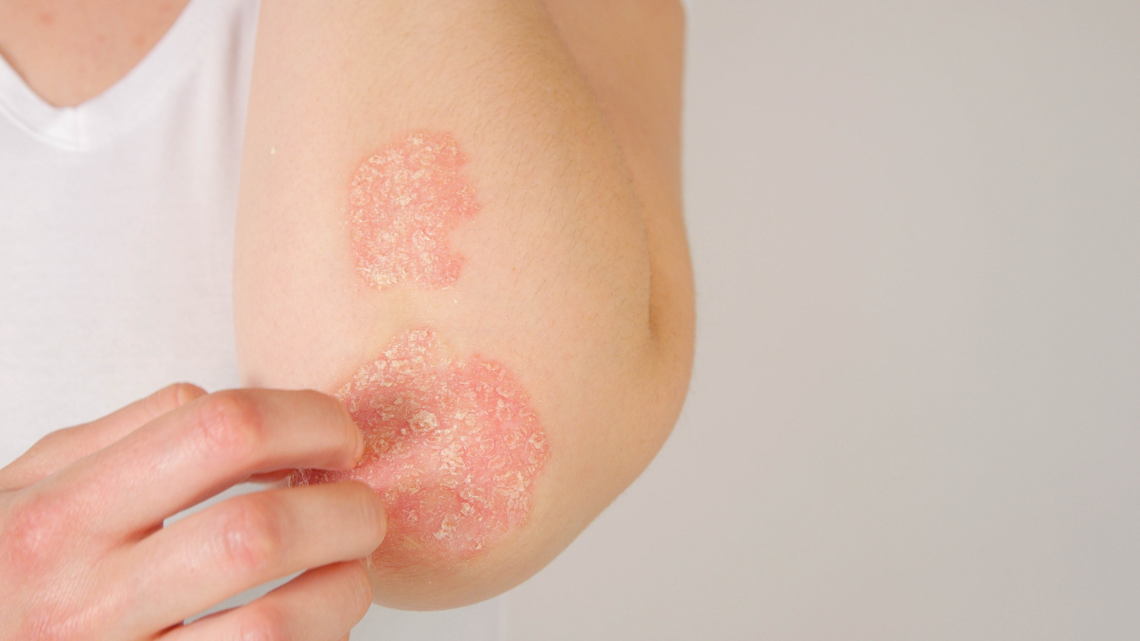
Easing Eczema in the Winter
Eczema, also known as atopic dermatitis, is a common skin condition marked by itchy, inflamed, and often red patches of skin. As the chilly winter months approach, many Canadians find themselves struggling with exacerbated symptoms of eczema. Understanding why eczema flares up in winter and adopting appropriate strategies can significantly improve one’s quality of life during these colder months.
Understanding Eczema and Its Winter Woes
Eczema is a chronic condition affecting the skin. It’s characterized by dry, itchy skin and rashes on various parts of the body. The exact cause of eczema remains unknown, but it’s believed to involve a combination of genetic and environmental factors. The condition is often associated with an overactive immune system response to irritants.
Why Winter Hits Hard: During winter, several factors contribute to worsening eczema symptoms:
- Dry Air: Cold air holds less moisture than warm air, leading to drier indoor and outdoor environments. This dryness can strip the skin of its natural moisture, leading to increased irritation and eczema flare-ups.
- Indoor Heating: Central heating systems can further reduce humidity indoors, exacerbating skin dryness.
- Hot Showers and Baths: Seeking comfort in hot baths or showers during cold weather can also strip the skin of its natural oils, worsening eczema.
- Woolen and Synthetic Clothes: Winter clothing often involves materials that can irritate sensitive skin.
Managing Eczema During Winter: Tips and Strategies
1. Humidify Your Environment: Using a humidifier in your home can help maintain an optimal level of humidity, reducing skin dryness.
2. Moisturize Regularly: Applying moisturizer immediately after bathing can help lock in moisture. Choose fragrance-free, hypoallergenic moisturizers that are more gentle on sensitive skin.
3. Gentle Skin Care: Use mild, fragrance-free soaps and avoid scrubbing your skin too hard. Pat dry after washing instead of rubbing.
4. Dress Smartly: Opt for soft, breathable fabrics like cotton instead of irritating materials like wool. Layer clothing to avoid overheating, as sweat can also irritate eczema.
5. Manage Temperature and Humidity: Keep indoor temperatures moderate and consistent. Avoid sudden changes in temperature, which can trigger eczema flare-ups.
6. Stay Hydrated: Drinking plenty of water helps maintain skin hydration from the inside out.
7. Consider a Diet Check: Some foods may exacerbate eczema in certain individuals. It’s worth discussing with a healthcare provider if a diet change could help.
8. Stress Management: Stress is a known trigger for eczema. Techniques like yoga, meditation, or regular exercise can help manage stress levels.
Medical Management
Topical Treatments: These include corticosteroid creams and ointments, which can reduce inflammation and itching. It’s important to use them as directed by a healthcare professional.
Systemic Medications: For severe cases, oral medications or biologics might be prescribed to control the immune system’s overreaction.
Phototherapy: Exposing the skin to controlled amounts of natural sunlight or artificial UV light can improve symptoms for some people.
Skin Barrier Creams: These are designed to repair the skin barrier and are often used in conjunction with other treatments.
When to See a Doctor
Consult a healthcare provider if:
- Eczema symptoms significantly worsen or don’t respond to over-the-counter treatments.
- The skin becomes painful, red, or swollen, which could indicate an infection.
- Eczema interferes with daily activities or sleep.
While eczema can be more challenging to manage in winter, understanding the triggers and adopting a comprehensive skin care routine can make a significant difference. Regular consultation with healthcare providers, personalized skincare strategies, and lifestyle adjustments can help individuals with eczema navigate the winter months with greater ease and comfort.
By staying informed and proactive, those affected by eczema can not only manage their symptoms effectively but also enjoy the winter season with minimal discomfort.

